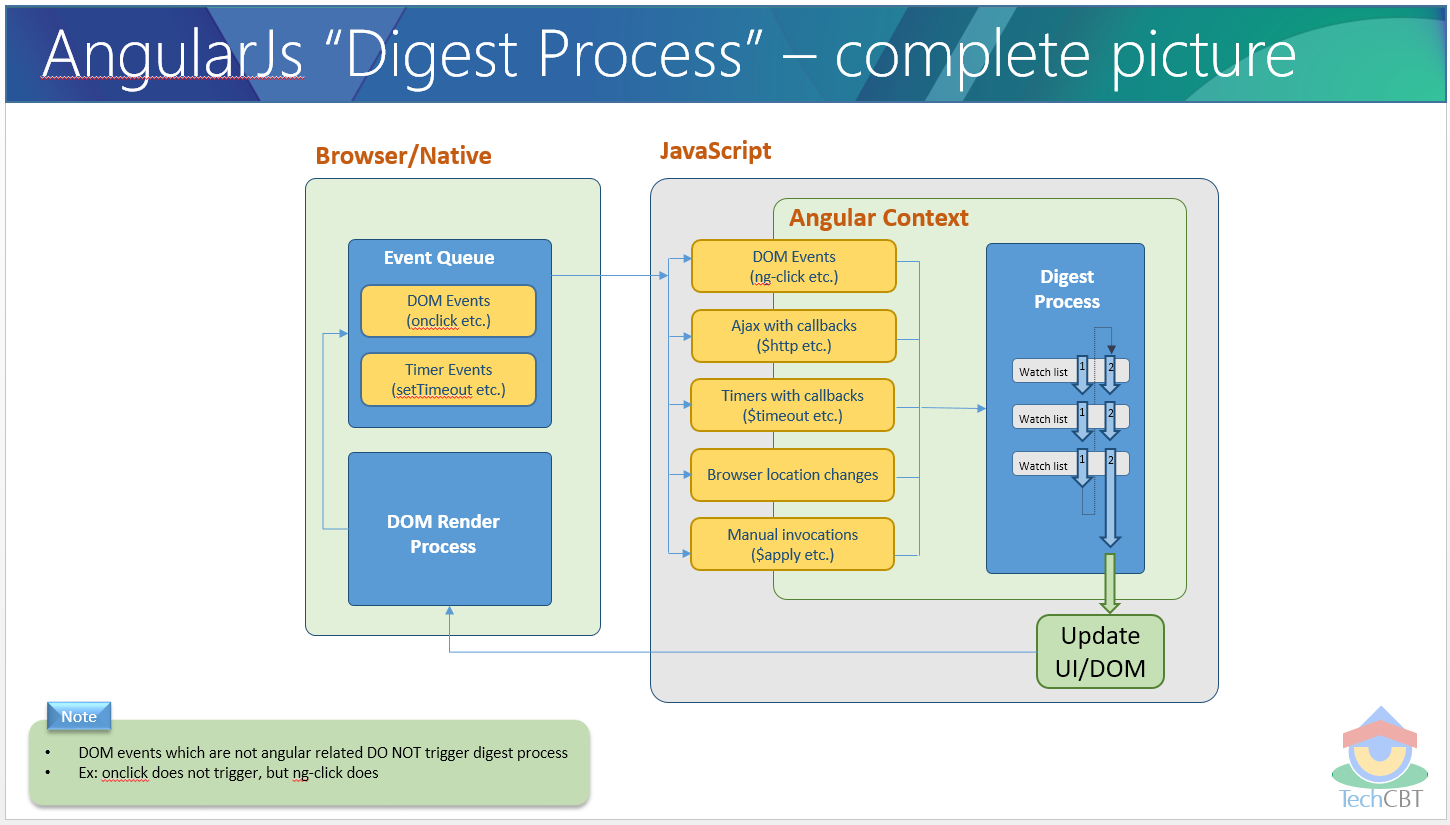I'm very confused when a digest cycle is happening, is it called periodically based on a timer every 50ms (as it says here and implied here) or is it called after every event that enters the angular context (as it says here, here and here) ?
Example when it is matter:
In my model, I have a variable called myVar with the value of 3.
In my HTML, I have {{myvar}}.
An event such as a button click is fired and raises a handler in the controller, the code inside the handler is:
$scope.myVar = 4;
// some heavy actions takes place for 3 seconds...
$scope.myVar = 5;
Assuming the UI thread is not blocked, what will the user see after the button click? will he see only 5 or will he see 4 and after 3 seconds 5?

